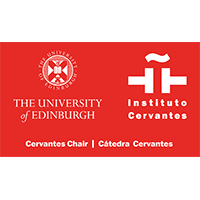Interview with Tito Valverde from ’15 years and one day’
 What did you find appealing about this movie for you to accept the role of Max?
What did you find appealing about this movie for you to accept the role of Max?
For actors, the term “appealing” is not very relevant. We don’t usually have a choice. The fact that somebody is calling and trusting you is enough to find it appealing. Speaking for myself; in my current situation, it’s true that if I’m not convinced about a project then I don’t have the need to do it. But in this particular case I did like the character very much. Like my friend Juan Meseguer told me years ago: ‘the most important character is not the one on screen the longest, but the one which makes the most sense’, and almost always the best characters are the ones the author, or director, most identifies with. In the case of this movie, despite having wonderful characters, it’s obvious that the director has a predilection for both the son and the grandfather.
Do you think this film is more angled for young people to better understand the adult world, or vice versa?
I think both ways. But what’s true is that it’s an intimate and honest movie that simply tries to tell its story. It’s very easy to identify with this movie because everybody knows a son and a grandfather. It touches a little the whole of society since, even if not personally, almost everybody knows somebody who is similar to the two main characters.
What was it like working with Gracia Querejeta?
Gracia Querejeta has a long background in cinema. She was brought up in that environment. She is very professional and, in this case ,she’s not just the director of the movie, but she’s also the author. And that’s something we can really notice because she knows perfectly well what she wants. I gave her a nickname ‘the director who whispers to the actors’ because she never corrects you in front of anybody, and if she wants you to change something or do it in a different way she would whisper it to you. Even so, Gracia commands authority with all the team without having to raise her voice.
Cinema, theatre or television. Which do you like the most and which are you most grateful to?
Theatre puts the most demands on the skill of an actor. I started my career in the theatre so it’s the one I’m grateful to for that, and for providing me with a wealth of experience that allows me to do what I am doing now. Television actually allows you to do theatre. Television helps you to become more recognised which, in turn, makes it easier to get interesting roles in plays. Also, thanks to the money from television I can enjoy a comfortable way of life.
In theatre you can feel the closeness and the warmth of the audience, but it requires a lot of self-discipline and a lot of time away from home when touring with a production. For that reason I would choose cinema right now, and would be more than happy if I could make a couple of movies a year.
I am very proud of all the theatre work I have done in my life, but it’s true that all that work fades with time and is not remembered in the same way as with films. When you make a movie it somehow immortalizes you because it remains recorded, and it’s very rewarding to go back to watch it again years later.





















